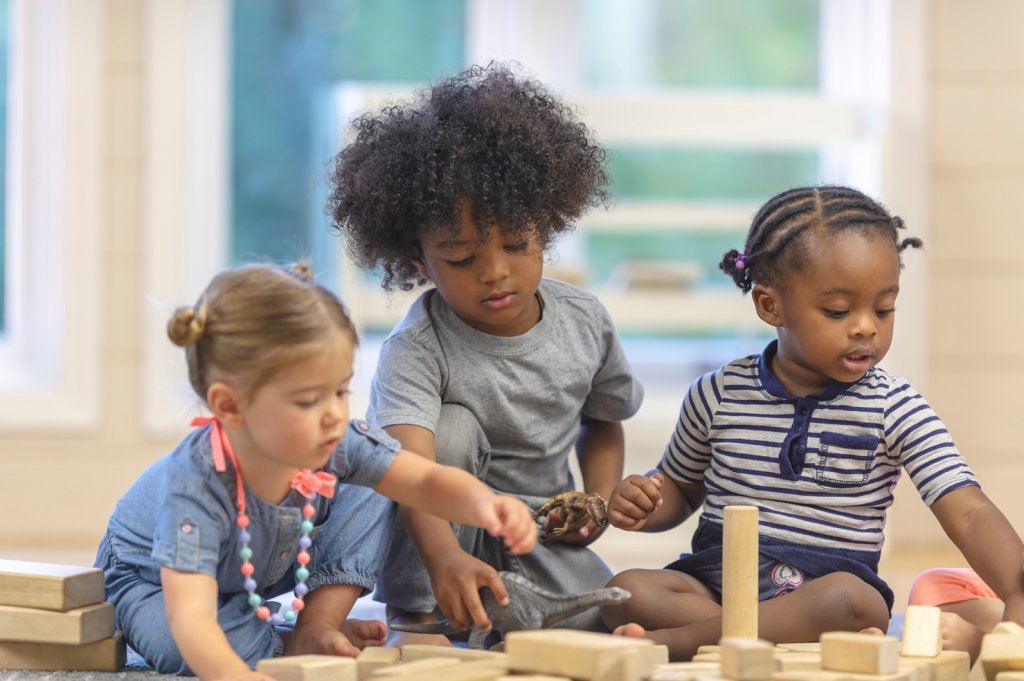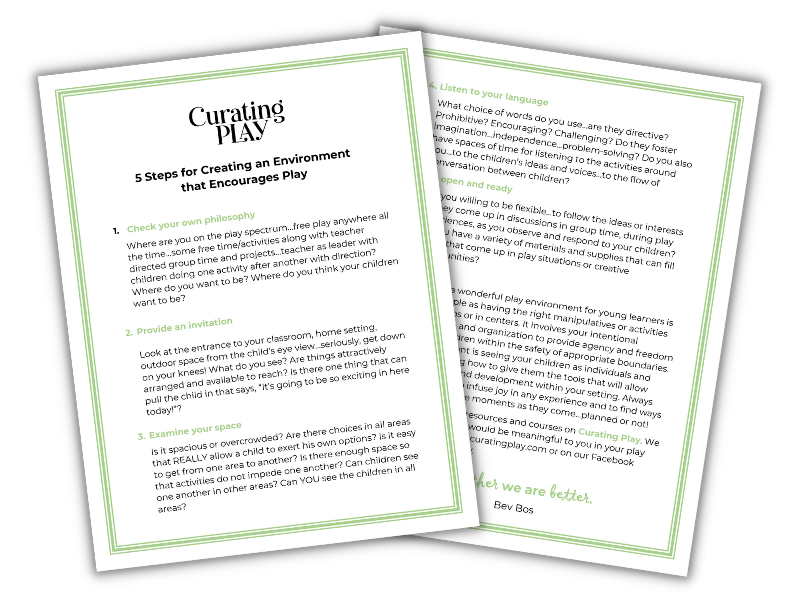So, in this month that starts off with a bang!! in many parts of the country, why am I connecting that patriotic celebration to play? Because play can be the most freeing experience a child can have…if we are mindful of some of the truths that are part of the expression of freedom.

Just as freedom is considered a right for all, freedom to play is seen as an intrinsic right as discussed in the UN Convention on the Rights of the Child, a formal document written in 1989. However, there are also many characteristics of freedom that are obvious to play advocates and practitioners to illustrate freedom in play.
How is play connected to freedom?
Play opportunities for young children are based on the social-emotional concepts of empathy and respect for others. Children are guided to work in concert with others who share their interests and to be open in their acceptance of others’ ideas. The design of processes used in classrooms and homes for sharing and clean-up, for example, are based on personal responsibility and positive group dynamics. Respect for others, the
family and the community is instilled in individual, small and larger group activities.
Play can be the most freeing experience a child can have.
Through open-ended and unstructured opportunities, children have the space and time to explore their own ideas, opinions and form their own beliefs. While guidance and direction from others may still be a part of the learning opportunities for children, through play children have the chance to build their own schema and experiment in their own ways of creating meaning. Freedom of choice during play in centers, outside, at home, with others or on their own allows a child to develop and grow in the areas of
imagination, independence and responsibility.

Through group discussions, teacher or peer conversations or in small conversational settings, players are able to express their thoughts, ask questions, gain information, share knowledge and contribute ideas to their community. This freedom of expression builds brains, social connections and personal confidence.
Finally, through play, children come to understand that their own freedom to participate and enjoy materials, situations and other players is limited by others that surround them. This is a big lesson for little ones to understand. Going from the egocentric mindset of a young child to a more developed perception of the freedom and rights of others is a journey—one that often does not provide an immediate grasp of its meaning. But given the strong support of a dedicated and consistent caregiver, teacher or relative, a child can begin to comprehend and appreciate the strategies and structures of an affirmative and enriching environment where play, like freedom, is valued in all its richness and joy.

Happy Independence Day if you are with me here in America…and Happy July to all!
Play well … Sharon





